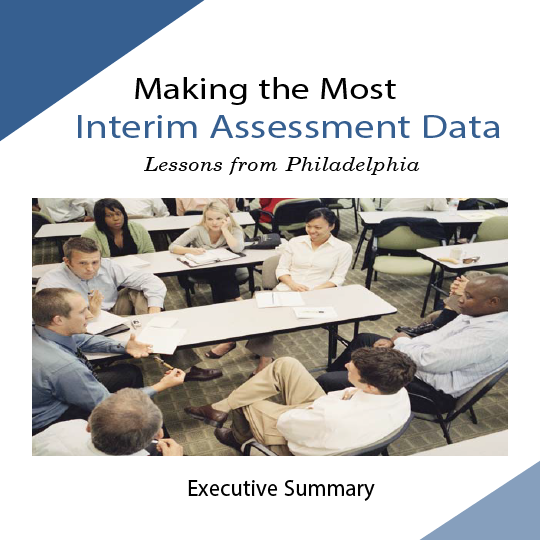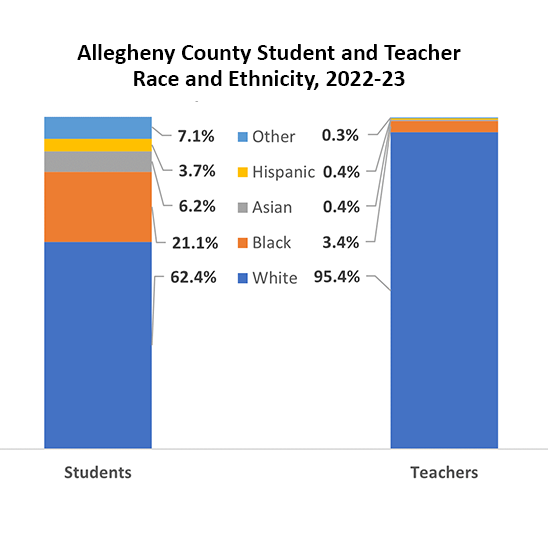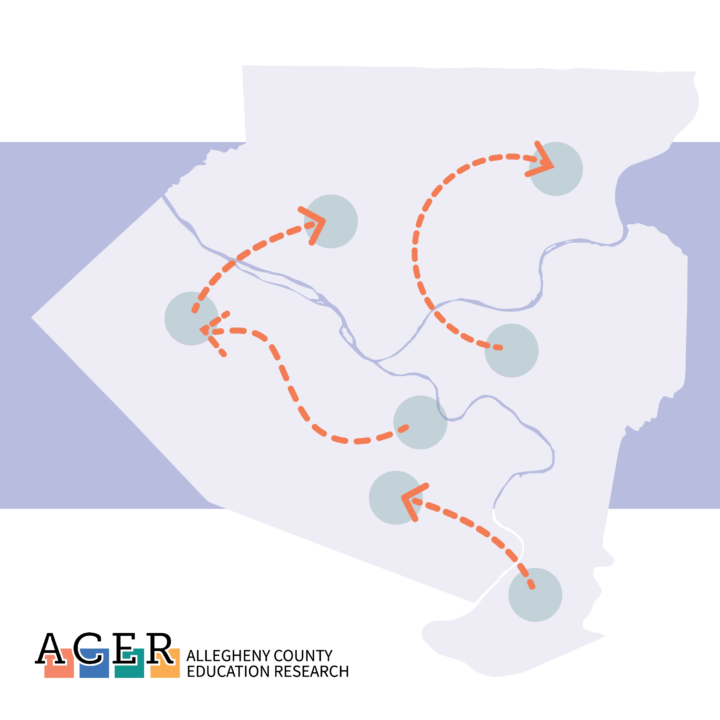This is the executive summary of RFA’s report, Making the Most of Interim Assessment Data: Lessons from Philadelphia. Under No Child Left Behind, urban school districts have increasingly turned to interim assessments, administered at regular intervals, to help gauge student progress in advance of annual state exams. These assessments have spawned growing debate among educators, assessment experts, and the testing industry: are they worth the significant investment of money and time? In Making the Most of Interim Assessment Data: Lessons from Philadelphia, Research for Action (RFA) weighs in on this issue. The School District of Philadelphia (SDP) was an early adopter of interim assessments, implementing the exams in 2003. Unlike teachers in some other regions, Philadelphia elementary and middle grades teachers rated these ‘Benchmark’ assessments highly. However, the study found that enthusiasm did not necessarily correlate with higher rates of student achievement. What did predict student success were three factors — instructional leadership, collective responsibility, and use of the SDP’s Core Curriculum. The report underscores the value of investment in ongoing data interpretation that emphasizes teachers’ learning within formal instructional communities, such as grade groups of teachers. This research was funded by the Spencer Foundation and the William Penn Foundation.

Making the Most of Interim Assessment Data: Lessons from Philadelphia – Executive Summary
Jolley Bruce Christman , Ruth Curran Neild , Katrina E. Bulkley , Suzanne Blanc , Roseann Liu , Cecily A. Mitchell , Eva Travers
Date: June 2009
Related Publications

Publication
Small but Mighty: Lessons from Black Teachers’ Experiences in Allegheny County
Siettah Parks, Kevin Burgess, Leana Cabral, Mary Eddins, Alita Robinson

Publication
Allegheny County Teacher and Student Demographics: 2022-23 Update
Mary Eddins, David Lapp, Anna Shaw-Amoah

Publication
Exploring the Diversity and Supports for School District of Philadelphia English Learners as they Prepare to Transition to High School
David Bamat, Sean Vannata, Lindsey Liu, Molly Schlesinger, Alyn Turner

Publication
The Need for More Teachers of Color
Leana Cabral, Mary Eddins, David Lapp, Saxon Nelson

Publication
FAQ: Superintendents in Pennsylvania School Districts
Mary Eddins, Leana Cabral, David Lapp, Molly Pileggi, Saxon Nelson, Ammani Ahmad-Khan
Publication
Access to Experienced Teachers in Allegheny County
Mary Eddins

Publication
Teacher Mobility in Allegheny County, 2014-15 through 2019-20
Mary Eddins, Molly Pileggi

Publication
Final Report: Evaluation of the Aspiring to Educate Philadelphia Pilot

Publication
Where Do We Go Next? Youth Insights on the High School Experience During a Year of Historic Upheaval
Molly Pileggi, Kri Burkander, Justis Freeman, Sean K. Flanagan, Max Margolius, Liz Glaser, Monika Kincheloe

Publication
Students Experiencing Homelessness in Allegheny County
Anna Shaw-Amoah

Publication
Special Education Funding in Pennsylvania Charter Schools
David Lapp
Publication
FAQ: Allegheny County Teachers of Color
Mary Eddins